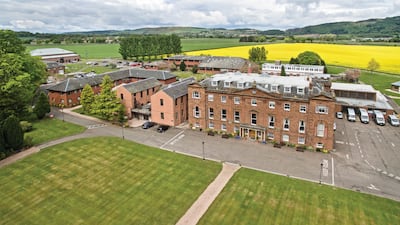A private school in Scotland has been forced to close following a combination of severe funding problems, a failed sale and the prospect of VAT being levied on school fees in the UK from January.
Kilgraston School in Perthshire, which was founded in 1930, announced it would close with immediate effect after a planned sale of the institution fell through.
Education provider Achieve Education had previously invested in Kilgraston and the company had planned to buy the school.
“Unfortunately, recent unexpected changes within Achieve Education have resulted in them reassessing their commitment to investing in Kilgraston and they are unable to proceed with the legal purchase of the school,” a school board of trustees representative said.
In a letter to parents, the school also said the “possible impact of VAT on school fees” was a factor in the decision to close.
The letter also pointed to an £860,000 hole in the school's finances, as well as £3.4 million in outstanding loans and other commitments.
The number of students was also an issue in Kilgraston's financial decline. The school needed 210 pupils to break even, but only 173 were registered there during the last academic year.
Kilgraston's fees for that academic year ranged from £11,000 ($14,000) to £14,000 a term for boarders, and between £5,000 and £8,000 a term for day pupils.
The school is based around a mansion in the Scottish town of Bridge of Earn and is surrounded by 11 hectares of grounds and woodland. The mansion was built in the early 1800s and was used as a hospital for wounded officers during the First World War, before the school was founded in 1930.
'Significant burden'
Under the Labour government's VAT plans, private school fees would incur a 20 per cent levy from January, a situation which many complain has left the sector in disarray.
The Scottish Council of Independent Schools believes the introduction of VAT will “disrupt the education of thousands of children in the independent sector and place a significant burden on the state sector”, as pupil move from private schools to state schools.
In its election campaign, the Labour Party argued the revenue raised from VAT on school fees would pay for 6,500 new teachers.
There are almost 2,600 private schools in the UK and research by Oxford Economics has shown the sector contributes £16.5 billion a year to the UK economy and supports 328,000 jobs.
Of the 620,000 pupils who attend the UK's private schools, around 10 per cent come from aboard as a British private education is deemed a valuable commodity.
Technically, these independent schools save the UK Treasury £4.4 billion a year, because the students who attend them are not in taxpayer-funded state schools.
The Treasury says around 94 per cent of schoolchildren in the UK attend state schools and that “ending the tax breaks on VAT and business rates for private schools is a tough but necessary decision that will secure additional funding to help deliver the government’s commitments relating to education and young people”.


